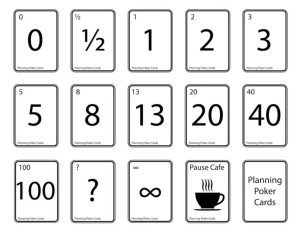How to beat procrastination

Have you ever had this happen to you? You planned important things from the evening, for example, to finish a quarterly report. In the morning you came to work with a firm belief to finish them, but then you got distracted by something, postponed them for some time, then for tomorrow. As a result, the deadline for the report is tomorrow, and you have complete chaos in your head. You try to quickly add up the figures, nothing works. The result: the report is not submitted on time, and you get a penalty from your boss.
The habit of putting off doing important things “for tomorrow” is called procrastination. Sometimes this condition is mistakenly confused with laziness. Someone believes that it arises due to lack of motivation. In fact, this is a serious problem that can grow into a dangerous addiction that destroys a person’s personality. Let’s try to understand how to get rid of procrastination, why this condition can’t be cured by “getting a grip”, and what ways really help to overcome procrastination.
What it is and how it differs from laziness

Procrastination refers to putting things off “for later”, leading to problems in work and life, to the development of chronic stress, loss of performance, and lower self-esteem. The term was first used in the Oxford Dictionary in 1548. Literally, the word is translated from Latin as pro – “instead of” and castinus – “tomorrow”. In the 20th century, the problem of procrastination began to be considered on a scientific level. However, there is still no clear explanation of the cause of this condition.
Some people equate procrastination with laziness. In fact, these states cannot be called unambiguous. A lazy person spends time in rest and relaxation, while a procrastinator actively spends his energy on secondary, unimportant matters, instead of channelling it in the right direction. The main cause of laziness is inertia, indecisiveness, lack of initiative. Lazy people do not take on serious tasks because they do not want to be responsible for their fulfilment.
Procrastination is a loss of motivation. A procrastinator does not refuse from the assigned task, but does not hurry to start its fulfilment due to the inability to assess its real complexity and volume. A kind of conflict between intention and action (I want to do it, but I can’t) is formed in his head. A lazy person will refuse such a task without thinking about its complexity. Physiologically, this process looks like this:
- A person thinks about an unpleasant matter – because of this there is excitation of the pain area of the brain.
- To get rid of the “painful sensations” he switches to something pleasant.
- Experiences temporary relief as a result of getting rid of discomfort.
Procrastination is an emotional reaction to accumulated tasks. It can be relaxed, when a person is distracted by something pleasant, or tense, when work does not start because of insecurity, dissatisfaction in oneself. This is not a disease, not a sign of weak character. In some ways, this state is similar to a bad habit, which over time can become permanent. If you let this process “on its own”, do not make attempts to fight procrastination, it sooner or later leads to sad consequences: loss of work, lower self-esteem, dissatisfaction with yourself and your life, chronic stress or depression.
Causes of Procrastination

To defeat procrastination, it is important to understand what causes it. There are quite a few of them. No one can work throughout the day without interruptions. Rest and distraction from business need everyone. But everyone spends a different amount of time on idle pastime. To the most obvious and common causes of procrastination can be attributed:
- Low self-esteem. The performer delays performing the assigned task because he/she is afraid of performing it incorrectly, poorly.
- Natural perfectionism, the desire to do everything perfectly. Not understanding how to give out the very, ideal, the best variant of solving a task, a perfectionist prefers not to undertake it at all.
- Fear of standing out among others, the desire to “be like everyone else“. This reason comes from childhood, when children are often imposed certain patterns of behaviour, non-compliance with which is frowned upon and condemned in every possible way. The phobia of success is no less evil than the fear of mistakes and failures. To become successful in life – means to attract attention to themselves. This entails great responsibility, risk. Therefore, the procrastinator subconsciously postpones serious matters that can bring him to a new level. He prefers to tread quietly and imperceptibly in one place.
- Unwillingness to obey. If the performer does not agree with the assigned task, it seems to him useless, stupid – he will have no desire to fulfil it quickly. Procrastination can also be a sign of hidden anger, dissatisfaction with the actions of management. Here is a simple example: your boss promises to appoint you the head of an interesting and promising project. You develop a strategy, prepare a plan of action, anticipating active and well-paid work. But suddenly everything changes dramatically. A new manager comes to the project, and you will have to work according to his plan, which is inferior to yours in many respects. There are two ways out of this situation: talk directly about the problem with your superiors or sabotage the project by devoting your working time to browsing the Internet.
- Lack of meaning in the work. Meaningless, empty tasks inspire disgust in performers. It is foolish to engage in work that has lost all meaning. Up to a certain time, of course, you can gather “will in a fist” and force yourself to work, but sooner or later it gets boring. If your work has become meaningless and useless for you, it is time to change it.
- Fatigue, overwork. When your resources are depleted, it is difficult to be active. Therefore, important tasks are put off “for later”.
Occasional procrastination rarely indicates a serious physiological problem. Most people procrastinate:
- Thinking that they still have plenty of time at their disposal. At the beginning of the job, deadlines seem far away, there is time, there is no need to worry. But haven’t you noticed that deadline always comes unnoticed?
- Reassessing your strengths and capabilities. Report due at the end of the week? That’s a lot of time! I can do it in a couple of hours, a day at the most. In practice, it turns out that you don’t have all the raw data at your disposal, the employee who was supposed to provide important information is on sick leave. The deadline is tomorrow and you haven’t even started work.
- Waiting for the “right mood“. Some performers believe that it is absolutely necessary to wait for a conscious desire to start work. Without inspiration, motivation, there is nothing to even take up the task. But if the task is routine and boring, it is unlikely to visit you. And to do unpleasant work in a hurry, under threat of punishment from the bosses – such a pleasure.
Whatever the cause of procrastination, it usually has a common scenario. You need to do something important (submit a quarterly report, talk to your boss about a pay rise, go to the doctor for a check-up). Because of this, negative thoughts and emotions arise (you are anxious, nervous, afraid or embarrassed). This leads to an internal conflict: you should do it, but you don’t want to.
What types of procrastination exist

There is a conventional division of procrastinators into two types:
- Passive, putting the task off because of decision-making problems;
- Active, who do not start work purposefully. Pressure is a kind of challenge and stimulus for them.
Psychology distinguishes the following types of procrastination based on behavioural styles:
| Perfectionists | Dreamers | Restless | Crisis makers | Unruly | The obsequious |
|---|---|---|---|---|---|
| Put things off for fear of doing them perfectly.Their main fear: not meeting expectations. | In their picture of the world there is calmness and harmony. But in order to solve real problems, they have to work hard, which makes them uncomfortable. | Panic-stricken fear of change that will disrupt the routine. | Need pressure because of an impending deadline. These people do the work on the last night before the project is due. | They refuse to fulfil tasks assigned to them by someone outside. This is a kind of demonstration of their own power. They promise to do something but “forget” to do it. | Ready to do a lot of different tasks to get approval from their superiors. But it rarely comes to their fulfilment. The main thing is to make the right impression on the management. |
The human brain is cleverly constructed. If the imminent punishment for failure to do his assigned work is postponed, he feels that he has invented an ingenious way out of the situation. He avoids unpleasant work and also enjoys being distracted by other things.
Another classification of procrastination was suggested by psychologist Stanley Milgram. He divided it into:
- Domestic, related to putting off household chores around the house (like cleaning or taking out the rubbish);
- Neurotic, with postponement of vital decisions;
- Academic, or procrastination of academic tasks;
- Decision procrastination, accompanied by procrastination in making choices when the right information is available;
- Compulsive, representing a learned type of behaviour.
What are the consequences of this condition
If you do not overcome procrastination in time, it will lead to a number of negative phenomena in life:
- Your self-esteem will be permanently lowered.
- You will experience anxiety, stress.
- You will have problems at work or in your studies.
- You will feel burnout, loss of interest in life and the work you do.
People who are prone to chronic procrastination can be compared to those who are in deep depression. They cannot start doing anything, even the simplest things. It seems to them that they will not succeed, because of this there is a sense of guilt, shame for their worthlessness. In order not to sink to such a level, it is important to overcome procrastination and start working. In mild cases, sometimes a “magic kick” from colleagues or relatives or your own motivation is enough. A chronic, neglected form of procrastination must be dealt with step by step, moving progressively from stage to stage.
How you can beat procrastination

So, let’s look at some simple actionable tips on how to get out of procrastination.
- Recognise the problem and stop criticising yourself. Without understanding its seriousness, you will not be able to cope with this condition. If the process has started far enough, you will not do without the help of a psychologist.
- Plan, make daily to-do lists. This is a simple but effective way of self-organisation.
- Motivation to get things done. You need to understand the benefits you will receive if they are successfully completed.
- Be open to change. Acknowledging a problem will do nothing if you don’t take the next steps to fix it. Be willing to move forward in small steps.
- A diary of plans and achievements. This is an excellent tool to help you overcome laziness and procrastination. In it, outline prospective and daily tasks, assign time for their fulfilment. Try to turn the process into a game so that it doesn’t seem boring and routine.
- Detail and analyse tasks. This will help you break down complex tasks into simple processes that you can do without difficulty.
- Start tasks immediately, without waiting for a favourable time. The timeframes set in your plans should be respected and adhered to.
- Determine for yourself that the discomfort of having to do unpleasant things is temporary. It will pass quickly, and you will have a finished product on your hands.
- Use the 15-minute rule. Determine for yourself that you will devote this time to uninteresting work, even if you don’t want to. If at the end of this period you also have no incentive to continue, look for the reason. Perhaps it’s just fatigue.
- Take failures lightly. They are inevitable. It is a natural process that provides valuable experience.
- Think positive! All thoughts about the possible termination of the planned event, exclude as destructive and negative.
LeaderTask organiser – an effective assistant from procrastination

To quickly get rid of disorganisation and procrastination, we recommend getting a personal electronic assistant that will remind you about unfinished tasks and help you control their timely completion. For example, the LeaderTask app is an effective, modern planning tool that supports all technologies and time management tools.
This service combines the capabilities of planner, task manager and convenient diary, where you can literally plan your day by hours. Thanks to the intelligent reminder system, you will always be aware of important events and will not lose sight of any task. The programme is suitable for personal use and for teamwork. In the application you can make lists of to-do’s, tasks, prioritise them, set deadlines, so that you don’t put off complex and serious tasks “for later”. Assign tasks to other executors, exchange any information with them in the corporate chat.
You will see your schedule for the current day, week, month or any date. The app can be used on any digital platform, including without an internet connection.
Conclusion
Procrastination is a natural condition that many people on earth are prone to. There is nothing wrong with occasionally taking your mind off important matters and relaxing a little. But if this process grows into a habit and then into a chronic addiction, it leads to very sad consequences.
Remember that all successful people are always active. To achieve certain results in life, you should not put off work “for later” or stop at what you have achieved. Set realistic, ambitious goals and strive to achieve them. When this behaviour becomes a habit, you will feel a surge of energy and optimism.



